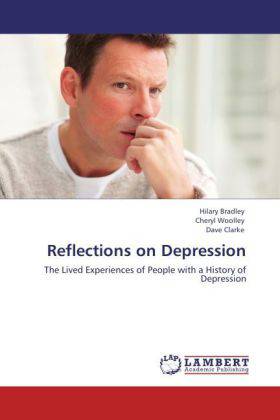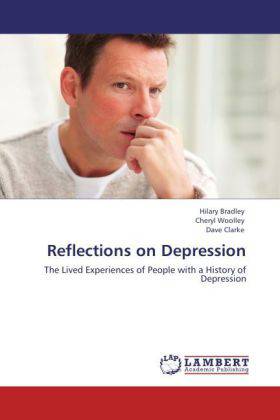
- Afhalen na 1 uur in een winkel met voorraad
- Gratis thuislevering in België vanaf € 30
- Ruim aanbod met 7 miljoen producten
- Afhalen na 1 uur in een winkel met voorraad
- Gratis thuislevering in België vanaf € 30
- Ruim aanbod met 7 miljoen producten
Zoeken
Reflections on Depression
The Lived Experiences of People with a History of Depression
Hilary Bradley, Cheryl Woolley, Dave Clarke
Paperback | Engels
€ 77,95
+ 155 punten
Omschrijving
Depression has been described as a prison where the individual is both the prisoner and the jailer. It is usually treated by medication and increasingly by cognitive behaviour therapy. Rarely do practitioners explore the causes and experiences of depressive episodes as seen by their patients. This book is based on the recollections of 13 long-term depressed adults up to a year after their participation in a controlled study of nutritional treatment for depression. Common stressors included early trauma and being bullied at school. Negative attachments with parents, negative beliefs, anxiety and poor communication styles continued from childhood through to adult relationships. Avoidance behaviours were the most common coping strategies employed. They revealed helpful and unhelpful factors which could assist clinicians in their decision-making regarding treatment. The current medical model of depression seems insufficient to conceptualise and guide treatment pathways. A social/contextual model might be more useful, wherein an individual's situation and experience are paramount.
Specificaties
Betrokkenen
- Auteur(s):
- Uitgeverij:
Inhoud
- Aantal bladzijden:
- 300
- Taal:
- Engels
Eigenschappen
- Productcode (EAN):
- 9783845404004
- Verschijningsdatum:
- 30/06/2011
- Uitvoering:
- Paperback
- Formaat:
- Trade paperback (VS)
- Afmetingen:
- 152 mm x 229 mm
- Gewicht:
- 439 g

Alleen bij Standaard Boekhandel
+ 155 punten op je klantenkaart van Standaard Boekhandel
Beoordelingen
We publiceren alleen reviews die voldoen aan de voorwaarden voor reviews. Bekijk onze voorwaarden voor reviews.











